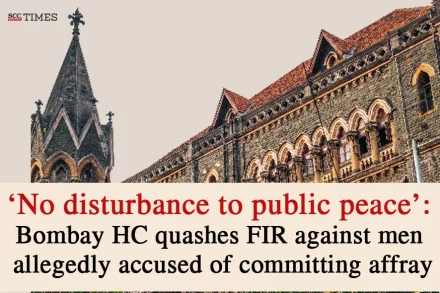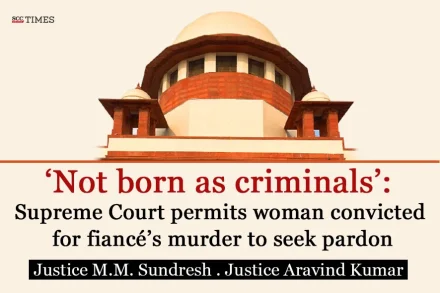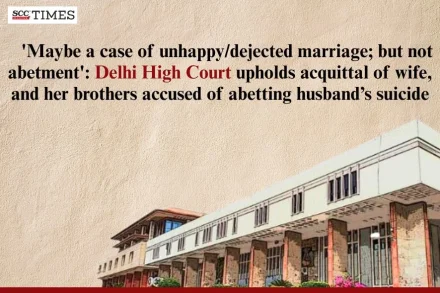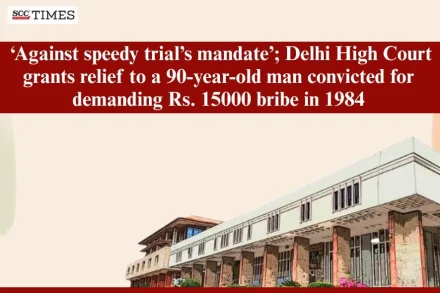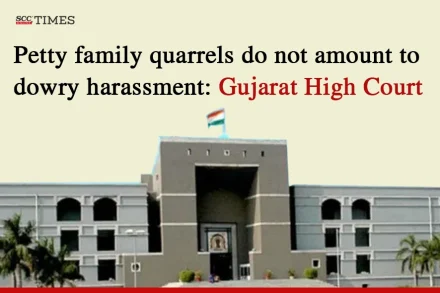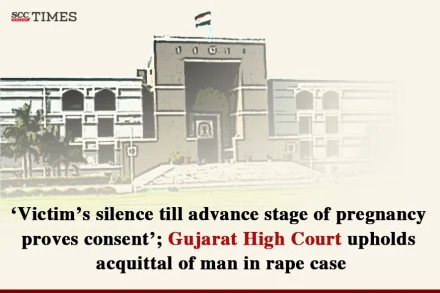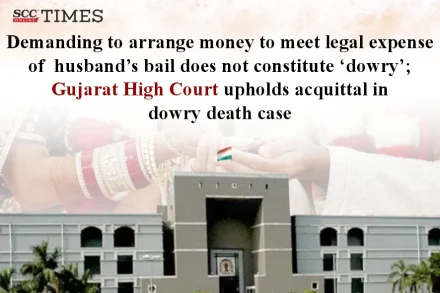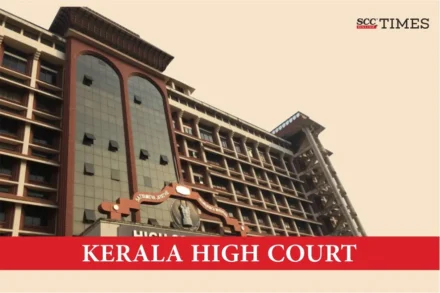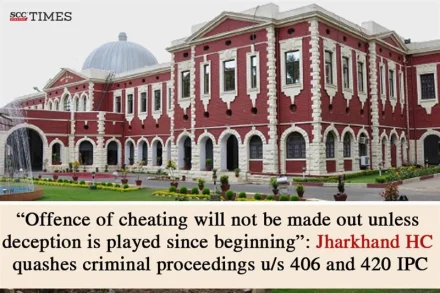
“Offence of cheating will not be made out unless deception is played since beginning”: Jharkhand HC quashes criminal proceedings u/s 406 and 420 IPC
Even if the entire allegations made against the petitioner are considered to be true in their entirety, the continuation of this criminal proceeding against the petitioner will amount to abuse of process of law.


